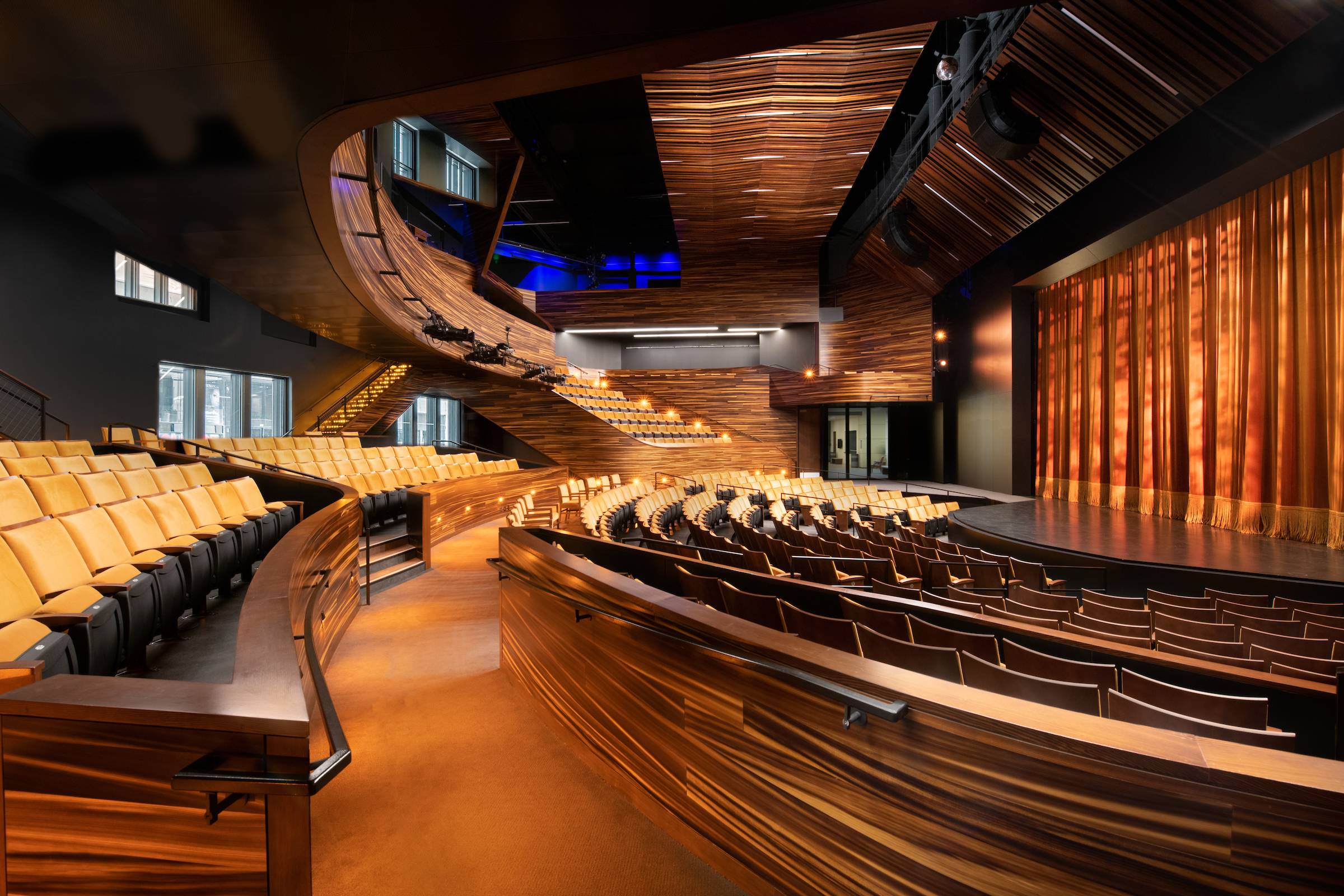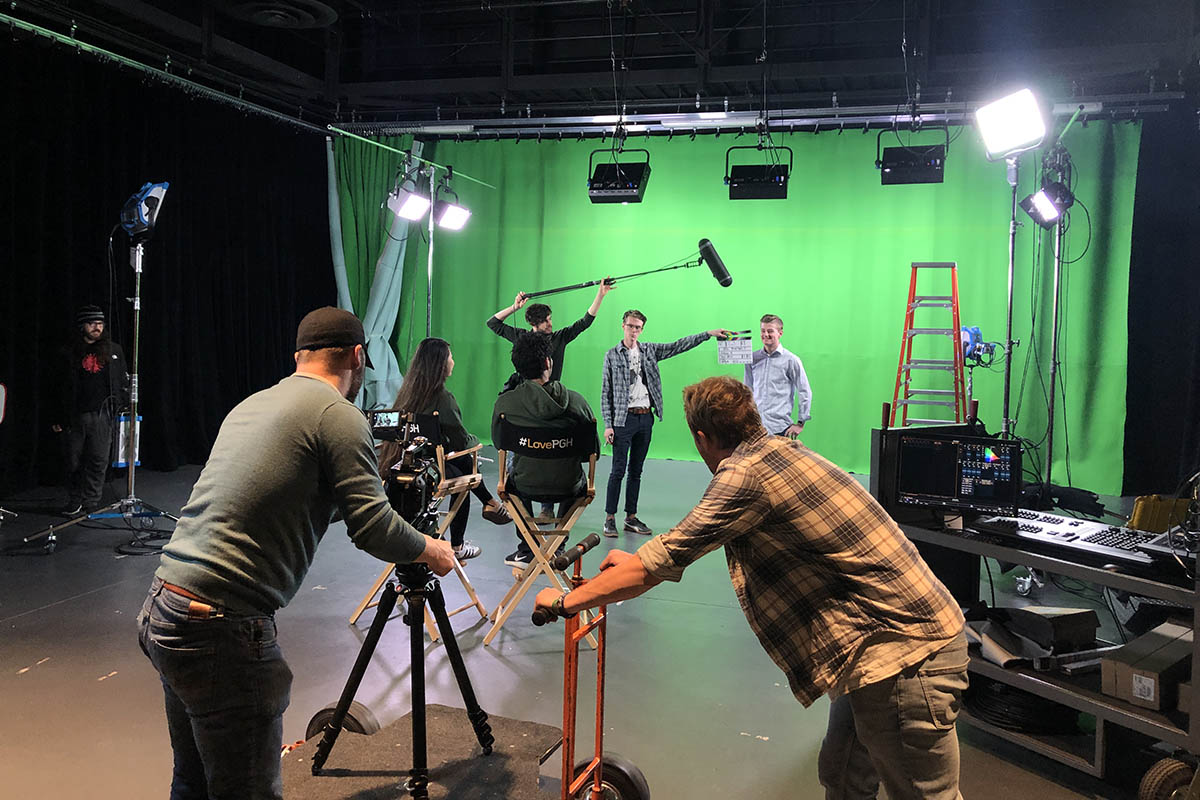Hands-On, Experiential Learning within a World-Class Conservatory
Point Park University's minor in Theatrical Engineering is an immersive, innovative program that provides students majoring in Civil Engineering, Electrical Engineering or Mechanical Engineering the opportunity to study the artistic and technical aspects of entertainment and performance.
The use of technology in entertainment and performance industries continues to grow on a daily basis, and the need for highly-skilled engineers with a background in this enterprise has never been greater. Only Point Park offers an exciting combination of engineering and theatre in Downtown Pittsburgh, where students are able to hone their skills with numerous professional theatre companies, all within walking distance of campus.
The minor is closely and thoughtfully integrated with Point Park's accredited Bachelor of Science engineering degrees (www.abet.org) to allow completion of the major and minor in four years with some summer and/or online coursework.
Interested students are urged to apply now to ensure adequate time for program orientation and fall course registration.
Practical Application, Guided by Seasoned Professionals

Pittsburgh Playhouse
Students who pursue the theatrical engineering minor will:
- Take one or two theatre-related courses each semester, starting with their very first term
- Study the theatre and theatrical works from a historical and artistic perspective
- Learn the basics of technical theatre from industry-experienced faculty in the University’s world-renowned Conservatory of the Performing Arts
- Work on live theatre productions alongside students and faculty in the conservatory, including shows at the Pittsburgh Playhouse
- Complete a senior capstone engineering project to create new technology in support of the entertainment and performance industry
- Develop relationships with working theatrical professionals
Courses & Topics

The soundstage at the Pittsburgh Playhouse
- Introduction to Theatrical Engineering
- Theatre History I and II
- Introduction to Theatre
- Technical Practicum I and II
- Fundamentals of Design and Drawing
- Scene Design
- Lighting
- Audio Design
- Professional Practice in Theatrical Engineering I and II
Successful completion of an engineering major and the theatrical engineering minor requires strict adherence to the program sequence. The University Advising Center and faculty in the engineering and theatre programs will guide you through course selection and scheduling.
Science, mathematics and engineering courses are taken in the Department of Natural Sciences and Engineering. Technical theatre and production courses are taken in the Conservatory of Performing Arts alongside full-time theatre majors, providing an unmatched interdisciplinary experience.
Currently the theatrical engineering minor is intended for engineering majors who are just beginning their major program of study; however, prospective students with other backgrounds, such as those already possessing an engineering degree, are encouraged to contact the faculty to discuss possibilities for gaining an equivalent experience. For more information, contact Donald Keller, Ph.D., P.E., at dkeller@pointpark.edu.
Entry Requirements
Students interested in the theatrical engineering minor should follow the application process for Point Park, designating their intended major as civil, electrical or mechanical engineering.
Within their application, students should state their intent to pursue the theatrical engineering minor and include an essay of at least 300 words addressing:
- Their background and interest in theatre
- Their plans for combining engineering and artistic considerations in modern performance and entertainment
Admittance to the civil, electrical and mechanical engineering programs carry additional science and mathematics requirements beyond the general requirements for admission to Point Park, which are outlined on the respective program pages.
Students pursuing the theatrical engineering minor should possess top-notch skills in science, mathematics and verbal communication and a desire to apply technology in a theatrical setting. This is demanding and fast-paced program but extremely rewarding. Upon graduation, students will possess the skills needed to work in a variety of settings, from production and theatrical companies to architectural or engineering design firms and equipment manufacturers.
Student Outcomes
Students completing the theatrical engineering minor will demonstrate the following knowledge and skills by graduation:
- Students will apply engineering concepts, practices and tools to create innovative technology in support of entertainment and performance.
- Students will practice engineering in an entertainment and performance setting with the utmost regard for artistic, ethical, social and safety considerations.


